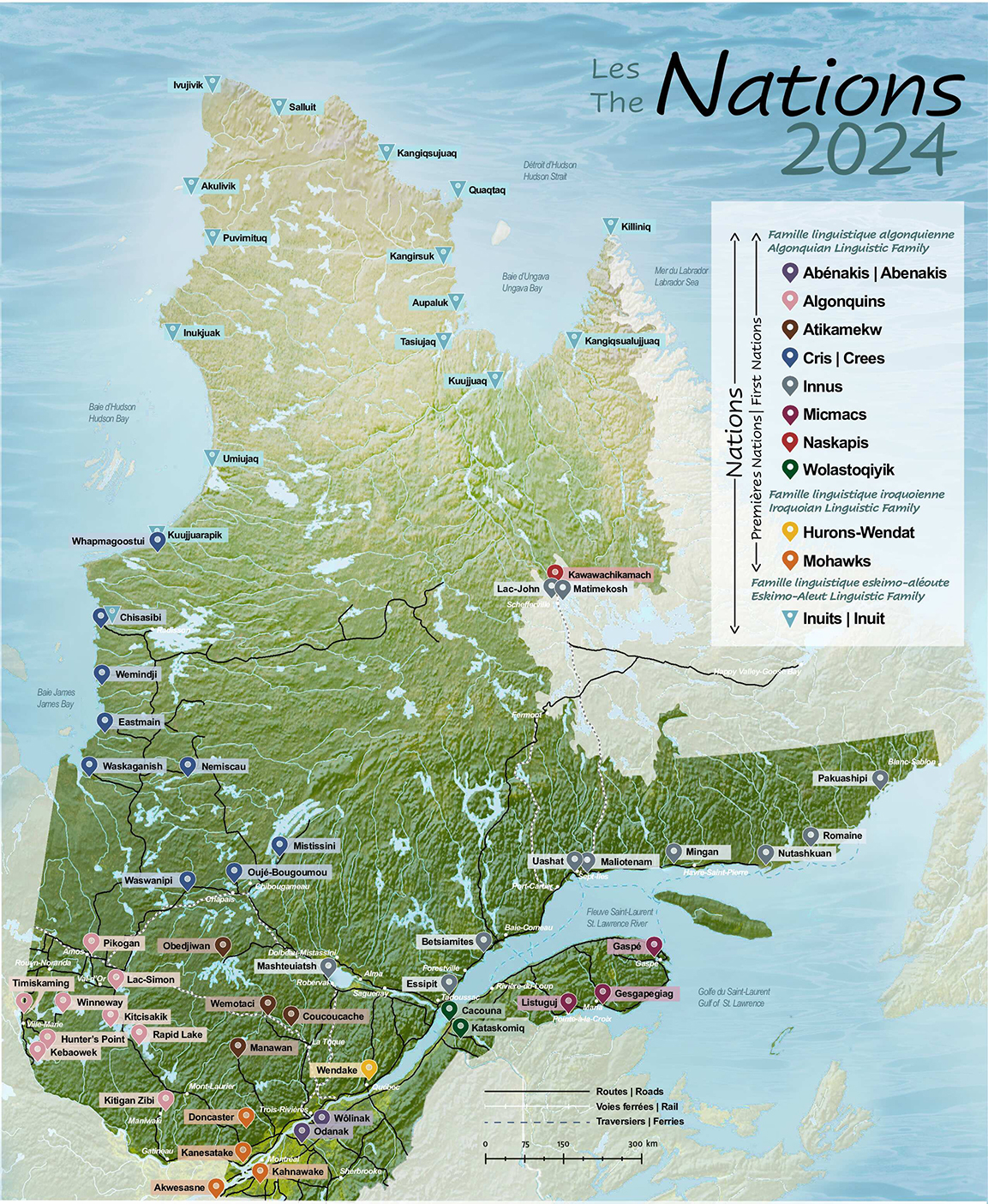Indigenous peoples
Quebec is home to ten First Nations and one distinct Inuit people (FNI), distributed across 55 communities. Unlike other parts of Canada, Quebec has no Métis community.
Although many Indigenous people live in their home communities, almost half of them live in urban and suburban areas across the province.
The ten First Nations and the Inuit number just over 120,000, which is more than 1% of the Quebec population. The Nunavik, Terres-Cries-de-la-Baie-James and Côte-Nord regions account for around 50% of this population.
Definition | Indigenous
In Canada, the term “Indigenous” refers to the original peoples of North America and their descendants. They are divided into three distinct groups: the First Nations, the Inuit and the Métis, each comprising several nations and communities with their own languages, dialects, cultural practices and beliefs.
Distinctions between certain communities
There is an important distinction to be made between communities located in urban or suburban areas and those in remote regions, such as the north. Some urban and suburban communities have access to municipal services and amenities like grocery stores, pharmacies, hospitals and public transit, while those in remote areas do not. They must engage in subsistence activities and use modes of transport that depend on the condition of the land.
This difference can be reflected in the way these communities live, as well as in their relationships with the ancestral notions of their people. The FNI living in suburban areas and those in remote regions may experience significantly differentiated impacts in the context of climate change in Quebec.

Figure 1: Map showing the geographical location of the FNI in Quebec. (From: Indigenous Services Canada, 2024)
-
Anishinaabe (Algonquin)
-
Atikamekw
-
Eeyou/Eenou (Cree)
-
Innu/Ilnu
-
Inuit
-
Kanien’kehà:ka (Mohawk)
-
Mi’gmaq (Micmac)
-
Naskapi
-
Wendat (Huron-Wendat)
-
Wolastoqiyik (Maliseet)
-
W8banaki (Abenaki)
Visualize Canada's ancestral territories
Climate change affects the First Nations and the Inuit in common and differentiated ways
The FNI in Quebec are all different from one another, with their own cultural and socio-demographic traits. The effects of climate change can be common, but also specific to certain nations and/or communities due to regional differences and distinct lifestyles.
It’s important to note that even within a community, the effects of climate change differ depending on traditional roles and specific relationships with nature. For example, women, who are often responsible for gathering and preparing food, have seen their responsibilities threatened, while men, who are more often involved in fishing and hunting large animals such as caribou, face increased safety risks. The younger generations may find it difficult to access traditional knowledge due to environmental changes, disrupting the transmission of intergenerational expertise.